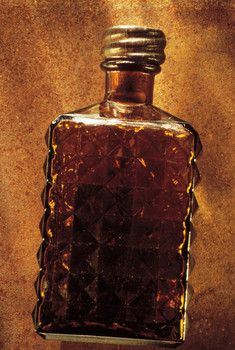May 9 2005
 It's what every Scotsman wants to hear, that wee dram is actually good for you!
It's what every Scotsman wants to hear, that wee dram is actually good for you!
According to researchers a single malt whisky can beat the threat of cancer, thanks to high levels of a powerful antioxidant that kills cancer cells.
A single malt whisky contains "more ellagic acid than red wine" says Jim Swan, an independent consultant to the global drinks industry.
Dr Swan speaking at the EuroMedLab 2005 medical conference in Scotland says that ellagic acid is an effective "free radical scavenger" that absorbs or "eats up" rogue cells that occur in the body during eating.
Free radicals can break down the DNA structure of existing cells, which leads to the risk of the body making replacement rogue cancer cells and whether you indulge in the odd tipple, or you are a serious connoisseur, whisky can protect you from cancer, and science proves it says Dr Swan.
Lesley Walker of Cancer Research UK says she is not convinced as there is considerable data documenting the link between drinking excess alcohol and the increased risk of a number of cancers, particularly in smokers, and though ellagic acid is a powerful antioxidant it is not necessary 'to hit the bottle' she says ellagic acid can also be found in soft fruits.
The EuroMedLab 2005 conference in Glasgow, is hosted by the Association of Clinical Biochemists, and more than 3,000 researchers, doctors and science and technology companies are expected to attend.